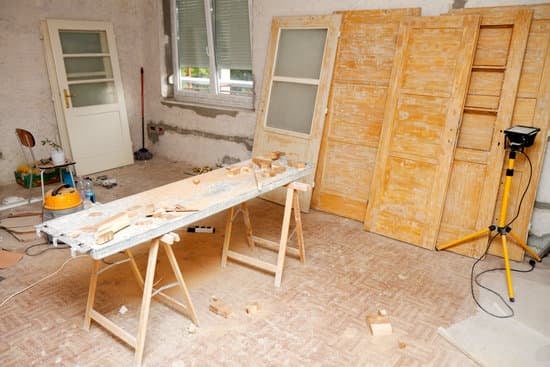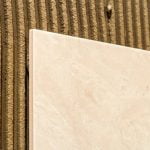Can I Write Home Improvements Off on My Taxes? Many homeowners wonder if they can deduct the costs of home improvements when filing their taxes.
Understanding tax deductions and how they work is essential in determining if you qualify for this benefit. This article will delve into the concept of writing off home improvements on taxes, providing insight into what projects may qualify, the documentation needed, limits or restrictions, potential tax benefits, and step-by-step instructions on how to claim these deductions.
When it comes to taxes, deductions play a crucial role in potentially reducing your taxable income. By deducting eligible expenses such as home improvements, you may be able to lower your overall tax burden. Qualifying home improvements can vary, but keeping detailed records and receipts is key to substantiating your claims. As we explore further into this topic, it’s important to note any limitations or restrictions that may apply when writing off home improvements on your taxes.
Homeowners looking to enhance their properties through renovations or upgrades should consider the potential tax benefits that come with these improvements. Understanding the intricacies of claiming these deductions on tax forms is crucial for maximizing your savings.
To ensure accuracy and compliance with tax laws, consulting a tax professional before attempting to claim these deductions is highly recommended. Let’s dive deeper into the details of what qualifies as deductible home improvements and how you can make the most out of this opportunity during tax season.
Understanding Tax Deductions
Tax deductions are a valuable way for homeowners to reduce their taxable income, potentially leading to lower tax bills. When it comes to home improvements, many individuals wonder, “Can I write home improvements off on my taxes?” The answer is yes, under certain circumstances. Understanding tax deductions is crucial in navigating the process of claiming expenses related to home upgrades and renovations.
Tax deductions work by allowing individuals to subtract certain expenses from their taxable income, ultimately reducing the amount of income that is subject to taxation. For home improvements to qualify as tax deductions, they must meet specific criteria set forth by the Internal Revenue Service (IRS). These criteria typically entail the improvements adding value to the property or serving a medical necessity for the homeowner.
Some common qualifying home improvements that may be eligible for tax write-offs include energy-efficient upgrades, such as solar panels or energy-efficient windows, as well as modifications made for medical purposes, like wheelchair ramps or bathroom grab bars. It’s important for homeowners to keep detailed records and receipts of these projects in order to substantiate their claims during tax season.
By staying organized and maintaining thorough documentation, individuals <can i write home improvements off on my taxes> with confidence and accuracy.
Qualifying Home Improvements
Energy-Efficient Upgrades
One of the most common types of home improvements that can potentially be written off on taxes are energy-efficient upgrades. This includes projects such as installing solar panels, energy-efficient windows, doors, and appliances, as well as upgrading insulation and HVAC systems. These upgrades not only benefit the environment but can also lead to significant tax savings for homeowners.
Medical Necessity Modifications
Another category of home improvements that may qualify for tax deductions are modifications made for medical reasons. For example, if a homeowner needs to install ramps, handrails, or other accessibility features due to a medical necessity, these expenses can potentially be written off on taxes. It is important to keep detailed records and documentation from healthcare professionals to support these claims.
Home Office Expenses
For individuals who use a portion of their home for business purposes, certain home office expenses may be eligible for tax deductions. This can include renovations or improvements to create a dedicated workspace within the home. However, it is crucial to accurately calculate the square footage used for business purposes and follow IRS guidelines when claiming these deductions.
By understanding the different types of home improvements that may qualify for tax write-offs, homeowners can potentially maximize their tax benefits while improving their living space. It is always recommended to consult with a tax professional or accountant to ensure eligibility and compliance with IRS regulations regarding claiming home improvement deductions. Keeping thorough documentation and records will also be key in supporting any claims made on tax forms related to home improvements.
Documentation Required
When it comes to potentially writing off home improvements on your taxes, documentation is key. Keeping receipts and records of your home improvement projects is crucial in order to prove the expenses you are claiming. Without proper documentation, you may face challenges if the IRS decides to audit your tax return. Therefore, it is essential to save all receipts, invoices, contracts, and any other relevant paperwork related to your home improvements.
One important reason why keeping documentation of home improvements is necessary is to determine the cost basis of your property. The cost basis is used to calculate the capital gains tax you owe when selling your home. By having detailed records of your home improvement expenses, including materials and labor costs, you can increase the cost basis of your property and potentially reduce the capital gains tax liability when you sell it.
Additionally, documentation of home improvements can also be beneficial in case you decide to rent out or use a portion of your home for business purposes. Certain renovations or upgrades that enhance the value of a rental property or make it more conducive for a home office can be deducted as business expenses on your taxes. In these cases, clear records of the costs incurred for these specific improvements can help support your claims with the IRS.
| Benefits of Documentation | Importance |
|---|---|
| Determining cost basis for capital gains tax | Crucial for reducing tax liability |
| Supporting deductions for rental properties or home office expenses | Essential for proving business use |
Limits and Restrictions
What Home Improvements Can I Write Off?
When it comes to writing off home improvements on your taxes, not all projects are eligible for deductions. Generally, improvements that increase the value of your home, prolong its lifespan, or adapt it for new uses can qualify for tax write-offs. This may include renovations such as adding a new bathroom, upgrading the HVAC system, installing energy-efficient windows, or making your home more accessible for individuals with disabilities.
Income Limits and Restrictions
While there are potential tax benefits to be gained from home improvements, it is essential to consider any income limits and restrictions that may apply. For example, some tax deductions have phase-out limits based on your adjusted gross income (AGI).
Additionally, there may be a cap on the total amount of deductions you can claim in a given tax year. It is important to consult with a tax professional to understand any limitations that could impact your ability to write off home improvements.
State and Local Regulations
In addition to federal tax rules, it’s crucial to be aware of any state and local regulations that could affect your ability to write off home improvements on your taxes. Some states offer their own tax incentives or rebates for certain types of home upgrades, while others may have specific requirements for qualifying projects.
It’s recommended to research the laws in your area or consult with a local tax advisor to ensure compliance with all relevant regulations before claiming deductions for home improvements.
Tax Benefits
When considering home improvements, many homeowners wonder, “Can I write home improvements off on my taxes?” The answer is yes, in some cases. Making certain home upgrades can potentially lead to tax benefits for homeowners. It’s important to understand the specific rules and guidelines set by the IRS to ensure that you qualify for these deductions.
One of the key tax benefits of home improvements is the opportunity to increase your property’s value while also lowering your tax liability. For example, energy-efficient upgrades such as installing solar panels or energy-efficient windows can not only save you money on utilities but also qualify you for federal tax credits. These tax credits can help offset a portion of the expenses incurred during these home improvement projects.
It’s crucial to keep in mind that not all home improvements are eligible for tax deductions. The IRS has specific criteria for what qualifies as a deductible expense. Before embarking on any major home renovation projects with the sole intention of receiving tax benefits, it’s advisable to consult with a tax professional. They can provide guidance on which improvements may be eligible for write-offs and how to properly document these expenses for tax purposes.
| Tax Benefit | Description |
|---|---|
| Federal Tax Credits | Available for energy-efficient upgrades like solar panels and energy-efficient windows |
| Deductible Expenses | Some home improvements may qualify as deductible expenses based on IRS guidelines |
Tax Form Instructions
When it comes to claiming home improvements on your taxes, it is essential to ensure that you follow the proper procedure to maximize any potential benefits. Here are step-by-step instructions on how you can claim home improvements on your tax forms:
- Identify Qualifying Home Improvements: The first step in claiming home improvements on your taxes is to determine which projects may qualify for a tax write-off. This may include renovations that improve the energy efficiency of your home, such as installing solar panels or upgrading to energy-efficient windows.
- Keep Detailed Records: It is crucial to keep thorough documentation of all expenses related to the home improvement projects. This includes receipts, contracts, invoices, and any other relevant documents that support the expenses incurred.
- Complete the Necessary Tax Forms: When filing your taxes, make sure to complete the appropriate sections or schedules that allow you to claim deductions for home improvements. This often involves including the total amount spent on qualified projects and providing a detailed breakdown of each expense.
By following these steps and ensuring that you have all the necessary documentation in place, you can potentially benefit from writing off home improvements on your taxes. However, it is important to remember that tax laws and regulations can be complex, so seeking guidance from a qualified tax professional before claiming deductions is always advisable. Remember, accuracy and attention to detail are key when it comes to maximizing potential tax benefits for home improvements.
Consultation With Tax Professional
When it comes to claiming tax deductions for home improvements, seeking advice from a tax professional is crucial. A tax professional can provide valuable guidance on what expenses qualify for write-offs and ensure that homeowners are complying with all the necessary regulations. Here are some reasons why consulting with a tax professional is recommended:
- Expertise: Tax professionals have in-depth knowledge of the ever-changing tax laws and regulations. They can help homeowners navigate through complex rules to maximize their deductions.
- Personalized advice: Every homeowner’s financial situation is unique, so a tax professional can provide personalized advice based on individual circumstances. They can assess which home improvement expenses are eligible for write-offs and how to properly document them.
- Audit protection: In case of an audit, having a tax professional by your side can provide peace of mind. They will be able to defend your deductions and support your claims with accurate documentation.
Before claiming any deductions for home improvements on your taxes, it is essential to gather all relevant documentation and receipts. These documents serve as proof of the expenses incurred and are necessary for substantiating your claims. Here is a list of important documents that you should keep track of:
- Receipts for materials and labor costs related to home improvement projects
- Contract agreements with contractors or service providers
- Invoices or billing statements showing payment transactions
- Permits or licenses obtained for construction or renovation work
- Proof of energy-efficient upgrades or installations, if applicable
In addition to gathering proper documentation, homeowners should be aware of any limits or restrictions when it comes to writing off home improvements on their taxes. While many home improvement expenses may be eligible for deductions, there are certain limitations set by the IRS.
It is important to understand these restrictions before making any claims on your tax forms. Consultation with a tax professional can help clarify these limits and ensure that you are adhering to the guidelines set forth by the IRS.
Conclusion
In conclusion, understanding the possibility of writing off home improvements on your taxes can provide valuable financial benefits for homeowners. By taking advantage of tax deductions, individuals can potentially reduce their taxable income and save money in the long run. It is essential to keep thorough documentation of all home improvement projects, including receipts and records, to support any claims made on tax forms.
While there may be limits and restrictions on what can be written off as a tax deduction for home improvements, it is still worthwhile to explore the potential benefits. Certain home improvement projects such as energy-efficient upgrades or modifications for medical reasons may qualify for tax write-offs. Homeowners should consult with a tax professional to ensure they are following all necessary guidelines and accurately claiming deductions on their tax forms.
In summary, homeowners are encouraged to educate themselves on the process of claiming tax deductions for home improvements by researching eligible projects, keeping detailed records, and seeking guidance from experts if needed. Ultimately, being proactive in exploring potential tax write-offs can lead to significant savings and financial advantages in the future. So, can I write home improvements off on my taxes? With the right approach and information, it is definitely a possibility worth considering.
Frequently Asked Questions
What Home Improvements Are Tax Deductible IRS?
Home improvements that are tax-deductible according to the IRS typically fall under the category of energy-efficient upgrades like solar panels, geothermal heat pumps, and energy-efficient windows and doors. These improvements can potentially qualify for tax credits, which directly reduce the amount of taxes owed.
What Household Expenses Are Tax Deductible?
When it comes to household expenses that are tax-deductible, items like mortgage interest, property taxes, and mortgage insurance premiums can be claimed as deductions on your tax return. Additionally, expenses related to home office deductions, medical expenses exceeding a certain percentage of your income, and charitable contributions may also be deductible.
What Capital Improvements Are Tax Deductible?
Capital improvements that are tax-deductible usually refer to renovations or enhancements that increase the value of your property in a lasting way. This could include things like adding a swimming pool, upgrading a kitchen or bathroom, or building an addition onto your home.
While you can’t deduct these expenses in the year they are made, they can potentially lower your capital gains taxes when you sell your home in the future.

I’m thrilled to have you here as a part of the Remodeling Top community. This is where my journey as an architect and remodeling enthusiast intersects with your passion for transforming houses into dream homes.





